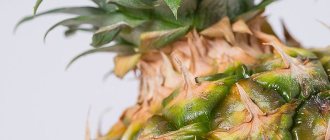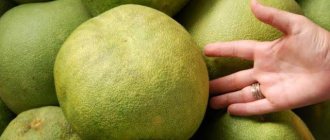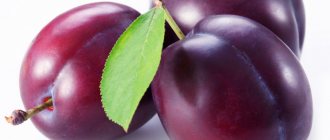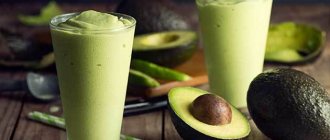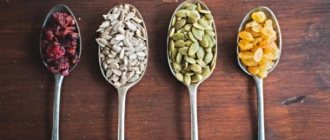Medical Consultant Pregnancy Ginger during pregnancy: medicinal properties, useful recipes
It is well known that most medications are undesirable to use during pregnancy. The results of surveys of expectant mothers show that about half of them turn to medicinal plants for help in treating diseases. True, according to obstetricians and gynecologists, the list of plants approved for use during gestation is even smaller than the list of relatively safe medications. Among the acceptable products, with some restrictions, is such an exotic product as ginger.
- Benefits, harms and safety of ginger for pregnant women
First trimester
- Second trimester
- Third trimester
- Fresh root and seasoning
- Ginger, honey and lemon mixture
Is pineapple good for pregnant women?
Pineapple contains vitamins C, PP, B12, B1, B2, A, D, as well as minerals - sodium, potassium, calcium, iodine, phosphorus, iron, copper, zinc. It contains proteins, sugars, dietary fiber and many other active ingredients. Thanks to this, pineapple brings certain benefits to the body of a pregnant woman.
Is it possible to eat persimmons while breastfeeding:
- The sweet and sour taste of the fruit helps reduce nausea, which often accompanies pregnancy. As a result, the expectant mother regains her appetite and improves digestion.
- Heartburn often occurs during pregnancy. Pineapple helps get rid of it.
- The fruit relieves swelling (many pregnant women suffer from it) because it has a diuretic property.
- If a pregnant woman suffers from varicose veins, then pineapple helps to some extent eliminate this problem.
- During pregnancy, some women experience increased blood pressure. Pineapple helps normalize it by cleansing the walls of blood vessels.
- Eating the fruit improves digestion and eliminates flatulence, which can cause premature birth.
- 100 g of fruit contains 10 mg of vitamin C, which increases the body's immunity to infectious diseases. Thanks to this, a pregnant woman is able to protect herself from various ailments. In addition, ascorbic acid promotes the absorption of iron and vitamin E.
- The B vitamins contained in the fruit contribute to the formation of the baby’s central nervous system. Also, these components prevent toxicosis, have a beneficial effect on the psychological state of a pregnant woman, and prevent hair loss and brittle nails.
- Iodine in pineapple is involved in the formation of the brain and thyroid gland of the unborn child.
- Calcium and phosphorus ensure the normal development of the baby’s skeleton and brain.
- Iron is an integral part of hemoglobin, which, in turn, delivers oxygen to the unborn child. In the first three months, iron deficiency can cause unwanted abortion. At later stages, low hemoglobin causes oxygen starvation of the child, which can significantly affect the mental and physical development of the baby.
- Pineapple can relieve pain in muscles and joints, which often appears during pregnancy.
- Thanks to dietary fiber, pineapple helps normalize stool, eliminating constipation (this is a common occurrence during pregnancy).
In the Guarani language, the name of this fruit means “exquisite taste.”
Possible harm from eating slices during pregnancy
After reading about the benefits of pineapple for a pregnant woman, many expectant mothers will think that the more they consume this fruit, the better. However, not all so simple. There are a number of reasons why it should be eaten with caution.
Is it possible to eat pine nuts while breastfeeding:
- Pineapple is an exotic fruit. Consequently, it can cause allergic reactions not only in a pregnant woman, but also in the unborn baby.
- The fruit contains the biologically active substance bromelain, which stimulates muscles and can tone the uterus. That is, there is a threat of premature termination of pregnancy. The highest concentration of bromelain is concentrated in unripe fruits (these are the ones that arrive on supermarket shelves).
- Despite its low calorie content (only 50 kcal per 100 g of product), pineapple has a high glycemic index (66). This means that the fruit is quickly digested and raises blood sugar levels, which are then converted into fat deposits.
Pineapple should be consumed with some caution during pregnancy, despite the fact that this delicious fruit is a valuable food source of beneficial components.
Advice. To ripen a pineapple at home, it should be wrapped in several layers of newsprint and kept warm. After two days, you need to try to pull a leaf out of the crown. If it comes out easily, it means the fruit is ripe. If the result is the opposite, then the pineapple should remain in this state for another three days.
Recent Entries
Is it possible to give a mirror: how to protect yourself from bad omens It became known about the influence of cell phone towers on human health Is it possible to eat bananas bought in Russia?
How to choose a natural product?
If you are looking for sweets that you can eat while breastfeeding, pay attention to candied fruits. Today there are a large number of candied fruits on the market, so it is important to be able to choose them correctly. First of all, look at the composition. The presence of flavors, dyes and other substances in candied fruits is prohibited.
Look at the appearance of the product. Too bright a color is the first sign of the use of chemical additives. If you decide to check the quality at home, pour boiling water over the candied fruits. Sometimes manufacturers make delicacies without using fruit at all or based on spoiled rotten raw materials. If the product consists only of sugar and additives, it will completely dissolve. If it is based on fruit, only the sugar will melt and the main component will remain. In addition, this will make it possible to see the presence of the dye, since in this case the water will be colored.
Is it possible in the early and late stages of pregnancy?
- Considering the listed risk factors that arise when consuming pineapple, many obstetrician-gynecologists recommend completely abandoning this fruit and its derivatives (for example, juice) in the first trimester.
- In the second trimester, it is allowed to consume pineapple extremely carefully and in small doses, provided that there are no allergies and there are no diseases in which the fruit cannot be eaten (see “Contraindications”). During 4–6 months of pregnancy, you can consume one slice of pineapple per week.
- The third semester is considered the safest for eating pineapple. However, this does not mean that the fruit can be eaten in unlimited quantities. 1-2 slices of fresh fruit 1-2 times a week will be quite sufficient for the expectant mother in the last months of pregnancy.
Pineapple should be stored in the refrigerator for no longer than 12 days, and it should be wrapped in paper. The temperature in the refrigerator compartment should be between 7–10 °C.
Methods and volumes of using kumquat
- Take 15 kumquat fruits, wash them, prick them with a toothpick and put them in a sterilized jar. Pour 1 glass of wine vinegar into a saucepan, add 4 boxes of cardamom, a pinch of salt. Pour the hot marinade over the kumquat and leave for 2 days. After this, the dish is ready, dry the kumquats with spices and you can eat them.
- Kumquat salad. Take 200-250 g of kumquats, cut them into small circles. Add onions, lemon juice, salt, herbs, and olives to the salad to taste. Use olive oil and pepper as a dressing. It turns out to be a delicious dietary salad that you can eat for dinner, avoiding indigestible foods.
Pineapple juice: is there any benefit?
In the first months of pregnancy, pineapple juice should not be consumed.
It is worth noting that doctors recommend consuming juice as follows: in the first trimester, avoid it altogether, in the second - 200 ml per week, in the third - 200 ml 1-2 times a week. If you do not adhere to the indicated doses, then in the future the child may suffer from allergies, as evidenced by the reviews of some mothers:
Oh, at the end of my pregnancy I was just drawn to him, my son was born with allergies ((
Natusik https://www.baby.ru/answers/students/category-4718096/question-31526419/
What if it is canned, dried, candied?
Candied fruits are made from pineapple, and the fruit can be canned. A reasonable question arises whether the expectant mother can use all these derivatives.
Validol for the expectant mother:
The high glycemic index of pineapple was mentioned above. When preserving fruit, sweet syrup is used, that is, the concentration of sugar increases even more. In addition to syrup, preservatives are also used. The same situation arises in the production of candied fruits. Therefore, we can conclude that it is better for a pregnant woman not to consume such pineapple derivatives at all.
Dried (dried) pineapple retains all its beneficial components. During the second and third trimester, a pregnant woman can consume 1-2 snacks per week.
Methods for processing fresh fruit in the photo
Dried pineapple retains all the beneficial components
Sweet candied fruit slices are also not recommended for expectant mothers
Canned pineapple contains a lot of sugar, which is undesirable during pregnancy.
Traditional recipes with kumquat for treating diseases
- 4 kumquat fruits are cut into two equal halves.
- Gently squeeze the juice out of the fruit into a separate container.
- The fruits themselves are placed in a teapot. They are filled with boiling water.
- The resulting mixture must be infused for at least 20 minutes. After this time, the contents of the teapot are poured into cups.
You can add a small amount of sugar and kumquat juice to the finished drink. Tea made from Japanese mandarin has a pleasant, sweet taste.
- It is necessary to squeeze out the juice from five kumquat fruits.
- Add 10 g of liquid honey and 10 ml of lemon juice to the resulting liquid.
- The product must be mixed thoroughly.
Take 1/2 tsp. drink every 60 minutes. Treatment is continued until the unfavorable symptoms disappear.
Dried kumquat relieves throat spasms. The product is rich in useful tannins. The dried fruit does not irritate the inflamed lining of the larynx.
Dried kumquat is also used for colds. This product contains a large amount of antioxidants, which have a general strengthening effect on the body. The benefits of dried kumquat increase many times over when eaten together with prunes or dried apricots. The product increases concentration. It is useful for representatives of the fair sex who are engaged in intellectual work.
Exotic fetus during breastfeeding
The wonderful properties of pineapple were mentioned above. It should be especially noted that when breastfeeding, pineapple helps:
- reduce nervous tension and depression, which is often typical for a woman who has given birth;
- relieve chronic fatigue.
However, all expectant and nursing mothers need to remember that the baby’s digestive system continues to develop in the first three months of life. During this period, the baby may experience colic in the abdomen, as well as allergic reactions in the form of rashes, redness, and itching. Therefore, a nursing mother should take care of her diet in such a way as to minimize all these phenomena.
When breastfeeding, pineapple should be introduced into a woman’s diet no earlier than 4–6 months after the birth of the baby.
As stated above, pineapple is a potentially allergenic food with a high sugar content. Its introduction into the diet of a nursing woman may well provoke an allergy in the baby. Therefore, doctors recommend starting to eat the fruit 4–6 months after the baby is born. In this case, you should eat only one small piece of pineapple in the morning and monitor the baby’s condition for two days. If no changes appear in the child’s health, then the mother is allowed to eat 150 g 2-3 times a week. Although it should be remembered that the period of breastfeeding is not the best time for experiments, and you can completely avoid pineapple during lactation.
Pineapple is not an essential product during pregnancy and breastfeeding. Despite its beneficial properties, this fruit can cause some harm to a pregnant woman and baby. Therefore, its consumption should be minimized or completely abandoned, and useful components can be obtained from other products.
